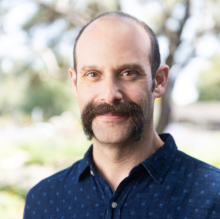Summary
Disclaimer: This summary has been generated by AI. It is experimental, and feedback is welcomed. Please reach out to info@qconsf.com with any comments or concerns.
This presentation by Paul Klein focused on the architecture and implementation of Browserbase’s Model Context Protocol (MCP), which supports stateful browser automation at scale.
Main Points:
- Architecture of MCP: The talk explained the infrastructure design that supports concurrent and session-isolated operations, which is vital to running parallel agents at production scale.
- MCP as Runtime Environment: MCPs are emphasized not as mere tools, but as runtime environments with unique constraints.
- Scaling Headless Browser Fleets: Participants were given actionable patterns for scaling, including managing cookies and sessions securely.
- Infrastructure Challenges: The challenges of running browsing functions at scale, such as resource provision and multi-region availability, were discussed.
- Tool Protocols and MCP: The presentation delved into MCP as a protocol that supports enhanced semantics over REST endpoints; this allows better integration with AI models.
- MCP Implementation: The integration of MCP was discussed, including comparisons to REST APIs and emphasizing the importance of unifying tools across models to improve model interaction and accuracy.
- Browser as a Universal Tool: The presentation emphasized the browser as a significant tool for web-based operations, enabling a wide range of functionalities from automation to interacting with web pages.
Takeaways:
- Understanding the importance of infrastructure in AI agent-based web automation.
- Insights into MCP and its role in enhancing the reliability and efficiency of web-based tool interactions.
- Lessons learned from production-scale orchestration and building robust infra that withstands varied challenges.
This is the end of the AI-generated content.
Abstract
AI agents are only as strong as the infrastructure beneath them. In this talk, we’ll walk through the architecture behind Browserbase’s model context protocol (MCP), built to support stateful browser automation at scale. From concurrency models to session isolation, this talk dives into what it actually takes to run parallel agents in production, and what we learned the hard way. Expect live demos, real-world lessons, and infra blueprints you can steal.
Main Takeaways:
- Infra-first thinking is crucial for agent-based web automation.
- MCPs are not just tools, they’re runtime environments with real constraints.
- Attendees will leave with:
- Concrete patterns for scaling headless browser fleets.
- Security tips for managing cookies and sessions safely.
- Infra cost models and deployment blueprints.
- Hard-won lessons from production-scale orchestration.
Interview:
What is the focus of your work these days?
We’re building a stateful, concurrency-safe browser infrastructure for AI agents. Our focus is making multi-agent orchestration reliable, secure, and scalable—without abstracting away the parts developers actually need to control, like context and memory.
What is the motivation behind your talk?
Everyone’s excited about agents but very few talks get into the gritty, technical realities of running browser-based agents at scale. We wanted to share the behind-the-scenes of how infrastructure decisions shape performance, reliability, and developer experience. If you’re building agents that touch the web, this is the stuff no one’s documenting yet—but should be.
Who is the target audience for this session?
Chief Innovation Officers, Engineering Leads, AI Engineers, Technical Leads, etc.
Speaker

Paul Klein
Founder @Browserbase, previously Director of Self-Service & Engineering Manager @Mux, Co-Founder & CTO @Stream Club, Technical Lead @Twilio Inc.
Paul Klein IV is a San‐Francisco‐based serial entrepreneur and engineer. After honing his chops at Twilio during its IPO and founding Stream Club—a live‐streaming platform acquired by Mux in 2021. In 2024 he launched Browserbase to give developers and AI agents fast, reliable, multi‐region headless‐browser infrastructure. In its first 16 months, Klein raised over $67 million (from investors like Notable Capital, Kleiner Perkins, CRV, and Okta Ventures). He views Browserbase as the “last‐mile” interface between large language models and the web, enabling end‐to‐end workflow automation far beyond traditional scraping.








